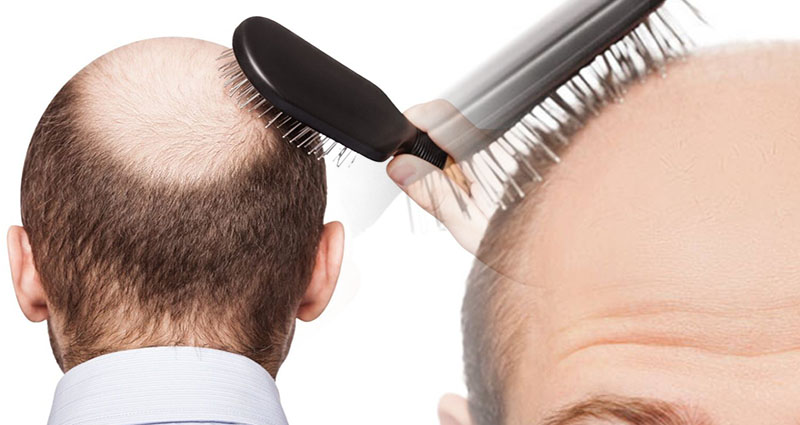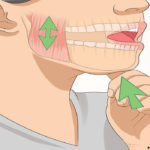The Average Success Rate of Hair Transplants for Male Pattern Baldness
Male pattern baldness, the most common type of hair loss among men, affects up to 70% of men at some point in their lives. While some men choose to embrace their baldness, others seek a solution through hair transplant surgery. But what is the average success rate of hair transplants for male pattern baldness?
Understanding Hair Transplant Surgery
Hair transplant surgery involves removing hair follicles from one area of the scalp (the donor area) and transplanting them to another area (the recipient area) that is thinning or balding. There are two methods of hair transplant surgery: Follicular Unit Transplantation (FUT) and Follicular Unit Extraction (FUE).
In FUT, a strip of skin with hair follicles is removed from the donor area and separated into individual hair follicles. In FUE, individual hair follicles are extracted directly from the donor area.
The success of a hair transplant depends on various factors such as … Continue Reading >>>
Which Vitamin Deficiencies are Linked to Hair Loss in Adults
Hair loss is a common concern for many adults, and while genetics and aging play a significant role, vitamin deficiencies can also contribute to this issue. In this article, we will explore the link between vitamin deficiencies and hair loss in adults, offering insights into the importance of key vitamins for maintaining healthy hair.
Vitamin D
Vitamin D is known for its role in bone health, but it also plays a crucial part in hair follicle cycling. Research has suggested that vitamin D deficiency may be linked to hair loss, as it can lead to disruptions in the hair growth cycle. To ensure adequate vitamin D levels, spending time in the sun and consuming vitamin D-rich foods, such as fatty fish and fortified dairy products, is essential.
Vitamin B7 (Biotin)
Biotin, also known as vitamin B7, is a key player in the maintenance of healthy hair, skin, and nails. A … Continue Reading >>>
Hair Transplant in Turkey: Exceptional Quality at Competitive Prices
Hair transplant procedures have become increasingly popular globally, offering a solution for hair loss and balding. Turkey, with its advanced medical technology and competitive pricing, has established itself as a leading destination for hair transplantation. This blog will focus on the benefits of undergoing a hair transplant in Turkey, with emphasis on “hair transplant turkey,” “hair transplant cost turkey,” and “hair transplant turkey cost.”
[Hair Transplant Turkey](https://celyxmed.com/hair-transplant/hair-transplant-in-turkey): A Center for Advanced Hair Restoration
Turkey’s reputation in the field of hair restoration is built on its use of cutting-edge techniques and highly skilled specialists. The country’s clinics are equipped with modern technology and follow international standards, ensuring patients receive the highest quality of care.
Understanding Hair Transplant Procedures
Hair transplant surgery involves moving hair follicles from a part of the body, known as the ‘donor site,’ to a bald or balding part of the body, known as the ‘recipient … Continue Reading >>>
Here are the Top 4 Potential Causes of Hair Loss and Baldness
Many reasons can cause noticeable thinning hair or baldness. It could be due to health conditions that lead to hair loss. Luckily, with the proper treatment of the health problem, the hair would remedy itself. However, if you are dealing with baldness or thinning hair, you need to visit a dermatologist to examine you and determine the cause of your problem. Ensure they are specialized in hair restoration to guide you on better ways to prevent and stop hair loss. Before going for the appointment, it’s crucial to know some of the root causes of hair loss to make it easy to comprehend what you need to do and the available option. This blog will outline potential causes of hair loss and baldness.
1. Thyroid Problems
Another hormone-related condition that can lead to hair loss is thyroid hormones. This could be either due to a medical condition called hypothyroidism or … Continue Reading >>>
Treatments for Peripheral Nerve Damage in Your Feet
Peripheral nerve injury refers to damage to the nerves that are outside the brain and spinal cord. These nerves, known as peripheral nerves, are responsible for transmitting signals between the brain and other parts of the body, including the muscles, skin, and internal organs.
Peripheral nerve injuries can occur as a result of physical trauma, such as a cut or crush injury, or from diseases and conditions, such as diabetes, arthritis, or exposure to toxins. They can also occur as a result of surgical procedures, such as amputations.
Treatments
Peripheral nerve damage in the feet can result in pain, tingling, numbness, and muscle weakness. The following are some common treatments for peripheral nerve damage in the feet:
- Physical therapy: Physical therapy can help strengthen the muscles and improve coordination in the feet, which can reduce symptoms and improve overall function.
- Medications: Over-the-counter pain relievers and prescription medications, such as anti-inflammatory













